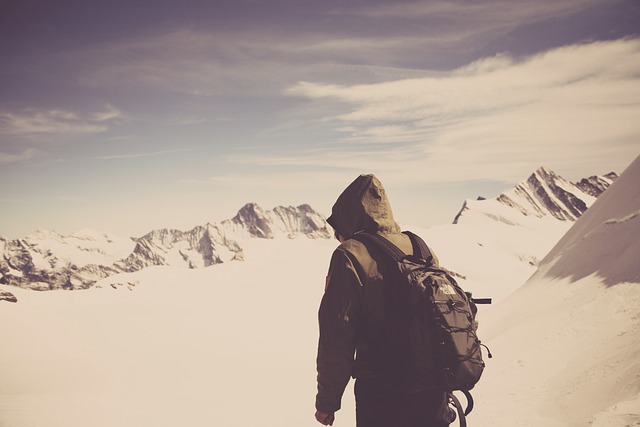Winter camping and backpacking can be a challenging and rewarding experience, but it’s essential to be adequately prepared for the colder temperatures and potentially harsher conditions. Here are some items that are considered necessary for winter camping and backpacking:
- Warm clothing: Layering is essential to stay warm in the winter. Ensure you have a good base layer of moisture-wicking fabric, such as merino wool or synthetic materials, to keep you dry. An insulating layer, such as fleece or down, will help trap heat and keep you warm. A waterproof and breathable outer layer, such as a hard shell jacket and pants, will protect you from wind and precipitation. Remember your head, hands, and feet, which are particularly susceptible to the cold, so make sure you have a warm hat, gloves, and insulated boots.
- Sleeping bag and pad: A perfect sleeping bag and pad are essential for staying warm at night. Look for a sleeping bag with a low-temperature rating that will keep you warm in the conditions you’ll be facing. A quality sleeping pad is also important to provide insulation and cushioning from the cold ground.
- Tent or shelter: A good quality 4-season tent or a cover designed specifically for winter camping is essential to protect you from the elements. Look for a tent or top with a sturdy and durable design, enough space for you and your gear, and a sound ventilation system to prevent condensation.
- Stove and fuel: A reliable stove and enough fuel to keep it running are essential for cooking and heating water. Look for a stove designed for cold weather use that can burn various fuels, such as white gas, propane, or butane. Make sure to have enough fuel to last the entire trip.
- Lighting: A headlamp or flashlight with extra batteries is essential for moving around and setting up camp in the dark. It’s also a good idea to bring a lantern or other light source for the tent or shelter.
- Navigation tools: A map and compass, and a GPS device if you have one, is essential for navigating in the winter. Make sure you know how to use them and have enough batteries.
- First-aid kit: A well-stocked first-aid kit is essential for any outdoor excursion, but even more so in winter when the risks of injury may be higher. Make sure to include basic first-aid supplies such as bandages, pain relievers, and a small emergency blanket.
- Emergency gear: Always bring a whistle and a signaling device such as a mirror. Consider getting a satellite phone or a personal locator beacon if you’re traveling in a remote area.
- Food and water: Bring enough food and water to last the entire trip, and make sure to have a way to purify or filter water if you need more clarification on the water sources on the trail.
- Snowshoes or Skis: If you’re planning to travel on snowy terrain, having a pair of snowshoes or skis can significantly improve your mobility and make your journey much more comfortable. It’s also essential to have the knowledge and experience of using them.
By bringing these essential items and being adequately prepared for the conditions, you can make the most of your winter camping or backpacking experience and stay safe and comfortable in the great outdoors. Always check the weather forecast, adjust your gear accordingly, and be prepared for unexpected changes in the weather.
